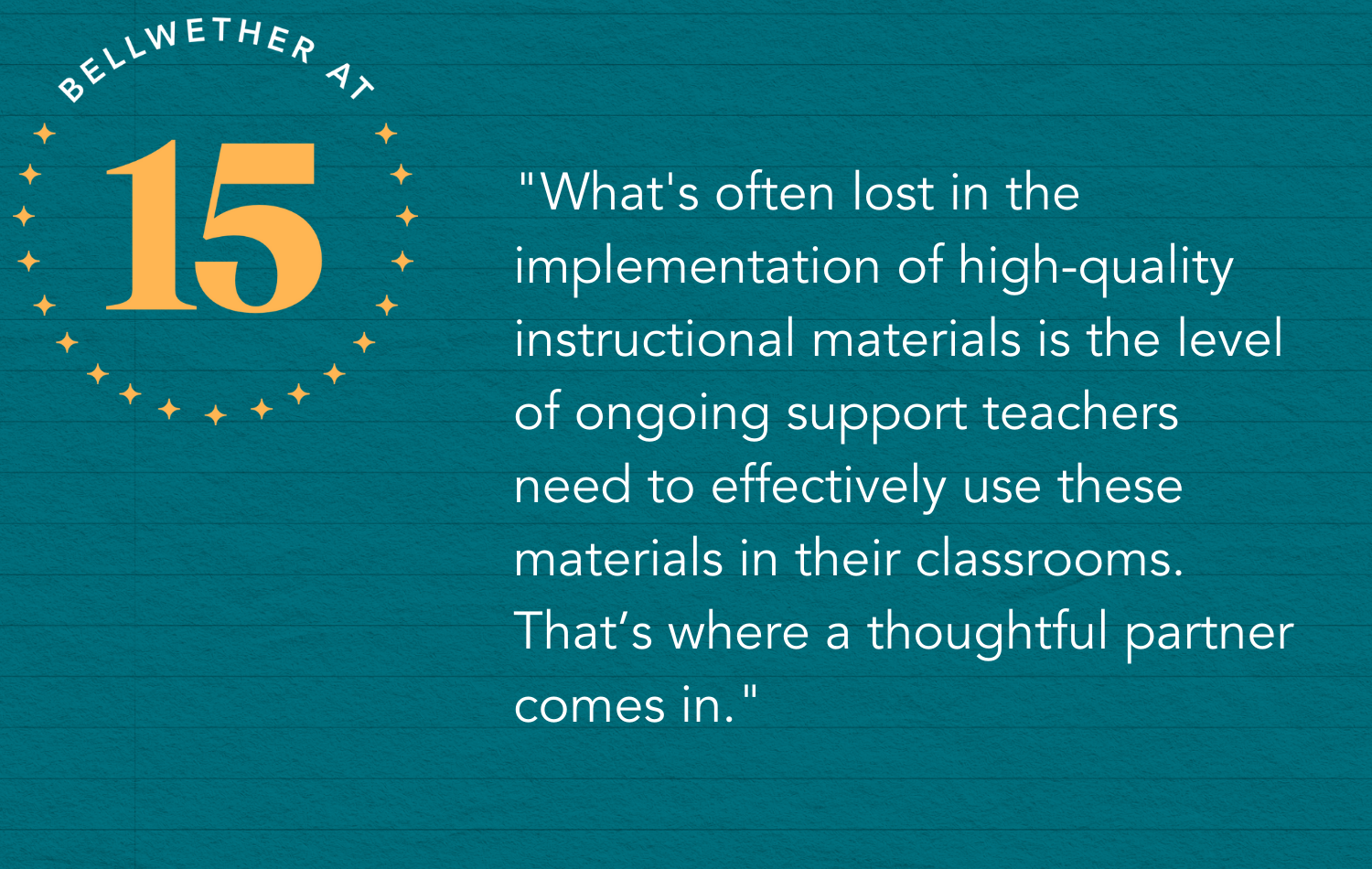Bellwether is 15 this year. We’re using this moment to look back on some of the work we’re most proud of — work that we plan on scaling as new trends and challenges emerge.
Imagine you’re an admirer of classic cars and someone hands you the keys to an old Ferrari. There’s one problem: You don’t know how to drive with a stick shift. You try anyway, and find yourself stalling out over and over again. You just can’t get out of first gear.
Teachers face a similar dilemma when they’re handed excellent K-12 curriculum with insufficient guidance on how to teach it. High-quality instructional materials (HQIM) are the Ferraris of curriculum, developed through extensive research on how students learn best. Studies show that a high-quality curriculum can lead to achievement gains more than any other education reforms, including decreasing class sizes or offering merit pay to teachers — needed gains in light of the ongoing declines in National Assessment of Educational Progress scores and persistent learning loss from the COVID-19 pandemic. When implemented well, HQIM can ensure that students receive a rigorous, on-grade-level education. But what’s often lost in HQIM implementation is the level of ongoing professional development and support teachers need to effectively use these materials in their classrooms and adapt them to the particular needs of their students without watering them down. No matter how talented and dedicated an educator may be, they can’t drive home the lessons of HQIM if they haven’t been taught how to get out of first gear.
That’s where a thoughtful partner comes in.
Bellwether’s Academic Programming and Strategy (APS) team — made up of former school, district, and network leaders — supports school systems grappling with instructional and operational goals through new school planning, school improvement plans, health assessments, and more. When it comes to HQIM, our experts ensure that school leaders have the right supporting structures and systems in place to make their curriculum successful over the long term, including finding the right scope and sequence for teaching the content, creating school calendars that meet students’ and teachers’ needs, and implementing a change management system that makes sure teachers and parents are heard throughout the process.
Bellwether also works directly with HQIM providers. They have a difficult job: They must meet the diverse needs of users across geographies, provide direction without limiting student and teacher autonomy, and align their content with ever-evolving definitions of quality. We help these providers navigate a range of challenges associated with creating business models that produce HQIM-aligned curriculum.
And because instructional excellence can’t exist in a vacuum, we also advise professional development organizations on the products and services that will help teachers thrive in the classroom. We have learned that the most effective HQIM and professional learning providers work best in tandem, helping instructors and leaders internalize content while pairing it with great teaching practices. We’re also anticipating what’s next in the instructional landscape. As questions about artificial intelligence’s future role in HQIM emerge, we work to ensure that the individuals most affected by curriculum — teachers, students, and their families — stay at the center of the conversation.
To put this in practice, Associate Partner and APS team member Emily Shisler recently spoke with Craig Hinkle, executive director of academics at International Leadership of Texas (ILTexas) Charter Schools, about how to coach teachers in the adoption of strong curriculum. While ILTexas initially faced challenges in its HQIM implementation, Craig found that success came down to the relationships between students and teachers, and in teachers’ willingness to be lifelong learners. Check out the video below to hear them discuss the importance of emotionally engaging with curriculum, relearning math as adults, and teaching students how all subjects are interrelated. Craig even shares a story about the time he had an opportunity to drive a 1930 Ford Model A — and couldn’t figure out how to start it.
For more on Bellwether’s HQIM support, click here.
